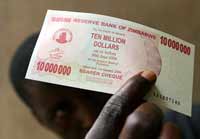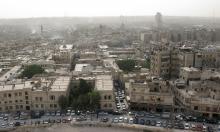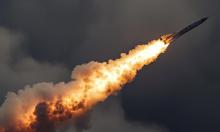Zimbabwe and Mugabe’s terror
Zimbabwe has set quite a number of inflation records. The inflation rate in the poverty-stricken African country makes up 231 million percent a year. The nation has 100-million-dollar notes in circulation. However, Zimbabwe used to be one of the richest countries in Africa.

Zimbabwe exists in the south of the African continent for over 25 years already. The name of the country has made many headlines of numerous news stories owing to its inflation rate which makes up 231 million percent a year. One may need a suitcase of cash to go shopping, if there is any kind of shopping available there now.
Nowadays, Zimbabwe is one of the poorest countries in Africa, although the situation used to be different before. The country was formerly known as Southern Rhodesia and was governed by the white majority. When the local population took over the power in the country, white farmers still remained the prime base of the national economic growth.
President Robert Mugabe launched the land reform in Zimbabwe in the beginning of the 2000s. The white population of the country was deprived of their plots of arable land according to government’s plans. The land was handed over to the local population. The white population was subsequently either killed or ousted from the country.
Mugabe’s land reform became the main reason of the national hunger and hyperinflation. The rate exceeded the level of 230 million percent a year in October 2008. The new landowners do not want and cannot deal with agricultural activities.
The issue of the historical right of Zimbabwe’s black population for the land of the white farmers still remains unsolved. The power in the nation, which used to be the British self-governing territory, belonged to the white majority. However, the black population enjoyed equal rights in terms of the local self-government. The unemployment level was very low, and Southern Rhodesia was included in the top five of Africa’s most developed nations. Its agricultural products enjoyed great demand all over the world.
Rhodesia pulled out from the British Community and declared independence in 1965. Great Britain stood up against such a step and imposed numerous sanctions against the young republic. Rhodesia’s suffered little damage because of those sanctions: many countries continued their commercial relations with the country via the South African republic and Mozambique.
A civil war broke out in Rhodesia after several years of its independent existence. The USSR, China and North Korea organized arms shipments to local nationalists. As a result, the country faced economic difficulties.
The country was renamed to Zimbabwe in 1980 when Robert Mugabe took presidency. Mugabe exterminated and expelled many of his adversaries. According to various estimates, about 100,000 people were killed under Mugabe’s rule.
Afterwards, Mugabe changed the constitution and turned the country into a one-party nation. Freedom of speech and democracy was banned, the political adversaries of the new regime were destroyed.
The Zimbabwean economy began to decline. The white population was blamed for the growing unemployment and inflation rate. The white population of Zimbabwe started to emigrate over another outburst of repressions. Zimbabwe became one of the poorest countries in Africa before the new millennium began.
The country currently depends on the humanitarian help from other countries. Mugabe continues to govern the nation against the background of hunger and poverty.
Mikhail Vovk
Subscribe to Pravda.Ru Telegram channel, Facebook, RSS!




